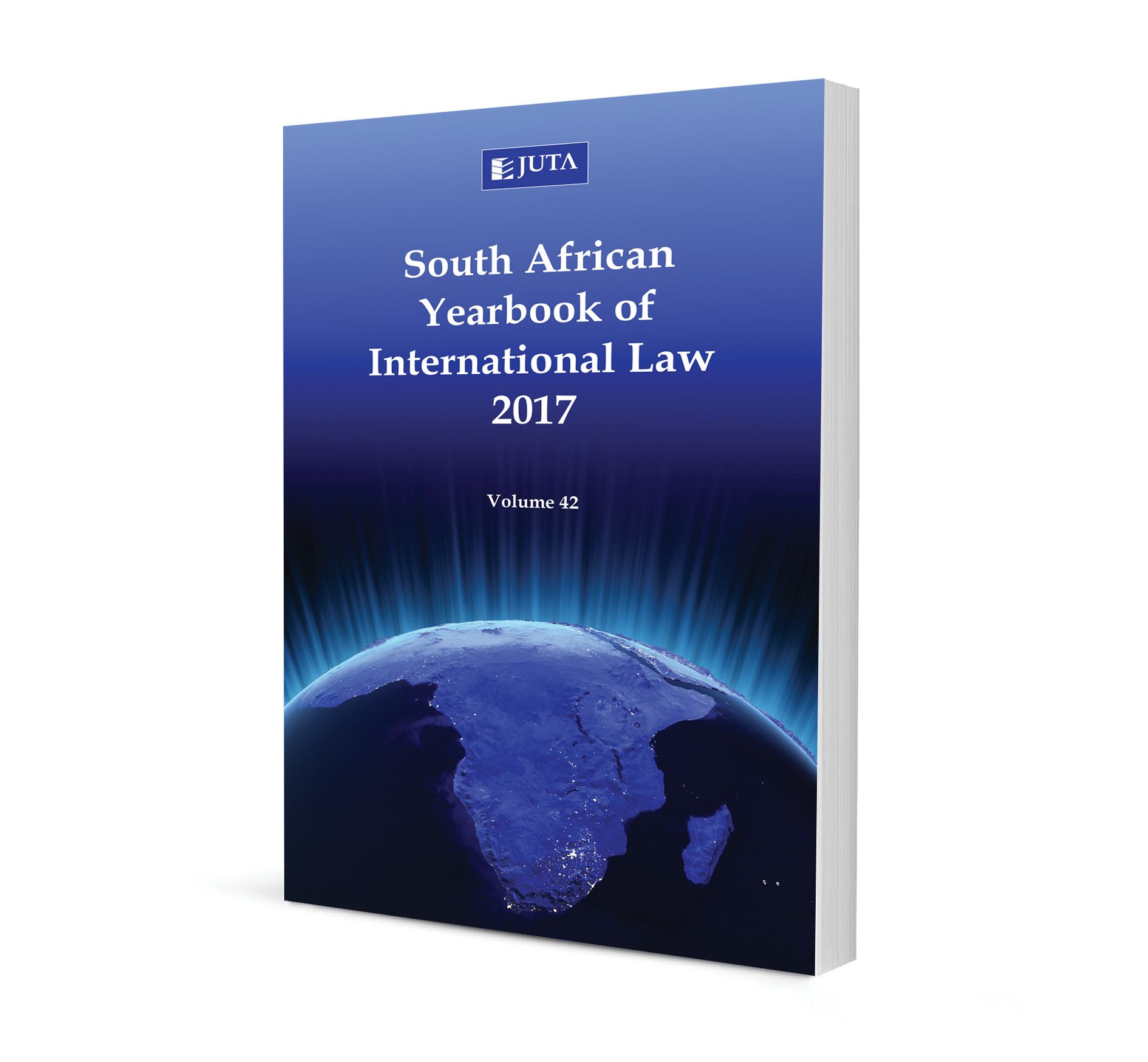Treaties: Multilateral

Treaties: Multilateral
Authors Rika van der Walt
ISSN: 2521-2583
Affiliations: Department of International Relations and Cooperation
Source: South African Yearbook of International Law, 2014, p. 293
Abstract
None

ISSN: 2521-2583
Affiliations: Department of International Relations and Cooperation
Source: South African Yearbook of International Law, 2014, p. 293
None

ISSN: 2521-2583
Affiliations: Department of International Relations and Cooperation
Source: South African Yearbook of International Law, 2014, p. 287 – 292
None

ISSN: 2521-2583
Affiliations: Professor, Department of Public, Constitutional and International Law, UNISA
Source: South African Yearbook of International Law, 2014, p. 248 – 286
None

ISSN: 2521-2583
Affiliations: Professor in the Department of Political Sciences at the University of South Africa (UNISA)
Source: South African Yearbook of International Law, 2014, p. 227 – 247
None

ISSN: 2521-2583
Affiliations: LLD Candidate, South African Research Chair in International Law, University of Johannesburg, South Africa
Source: South African Yearbook of International Law, 2014, p. 209 – 226
This contribution argues that the decision to authorise the establishment of the Multinational Joint Task force (MNJTF) could not have come at a better time. Furthermore, it argues that the mandate of the MNJTF is comprehensive enough to bring stability to the Lake Chad region and is evidence of the African Union’s (AU) commitment to fighting terrorism and extremism on the continent. The first part of the paper gives a contextual background to the ‘Boko Haram’ insurgency while the second part outlines the Nigerian government and the international community’s response to the insurgency. The third section discusses the mandate of the MNJTF and further outlines reasons why the establishment of the Force is a timely intervention by the AU. This is followed by concluding remarks. The paper does not attempt to define terrorism as there are numerous definitions of the phenomenon; however, it proceeds from the premise that the activities of Boko Haram constitute terrorism.

ISSN: 2521-2583
Affiliations: Senior Lecturer, Faculty of Law, North-West University (Mafikeng Campus)
Source: South African Yearbook of International Law, 2014, p. 172 – 208
States, as the principal actors of international law, owe duties to both other states and their peoples. Among these duties are the protection of its national territory, its peoples, and their national interests. These duties are sacrosanct and constitute the primary responsibility of any responsible government. In cases of armed attack launched against a sovereign state, international law clearly grants the state under attack the right to defend itself. The use of force in the exercise of the right of self-defence is governed by article 51 of the United Nations (UN) Charter, the substantive content of which has triggered considerable debate. I argue that the recent armed attacks launched by the Nigerian-based terrorist network, Boko Haram, on Cameroonian soil qualify as both aggression and mass atrocities. This compels the state to fulfil its primary mandate to protect its people. In consequence, Cameroon’s responses have been varied including the adoption of counter-terrorism legislation; diplomatic engagements with neighbouring states such as Chad, Benin and Niger and the resulting establishment of a Regional Multinational Joint Task Force; and a military counter-offensive against Boko Haram to contain and repel the Nigerian-based terrorist group. Given the diversity of these responses, one may ask whether they are justified in international law? This paper seeks to answer this question by assessing the legality of each of Cameroon’s responses in the light of international law and counter-terrorism measures.